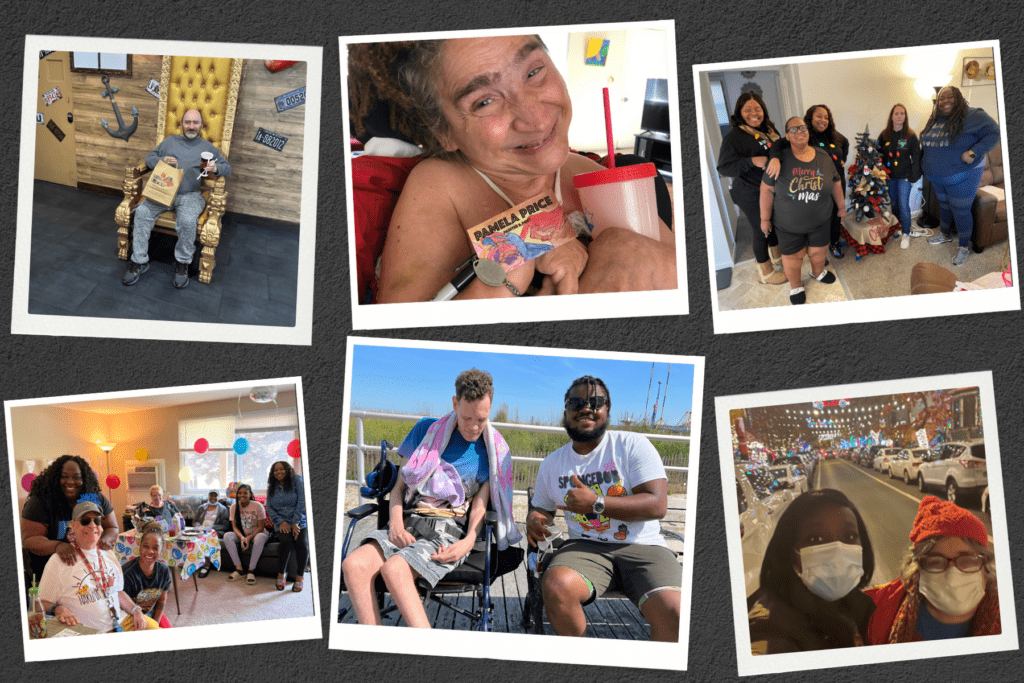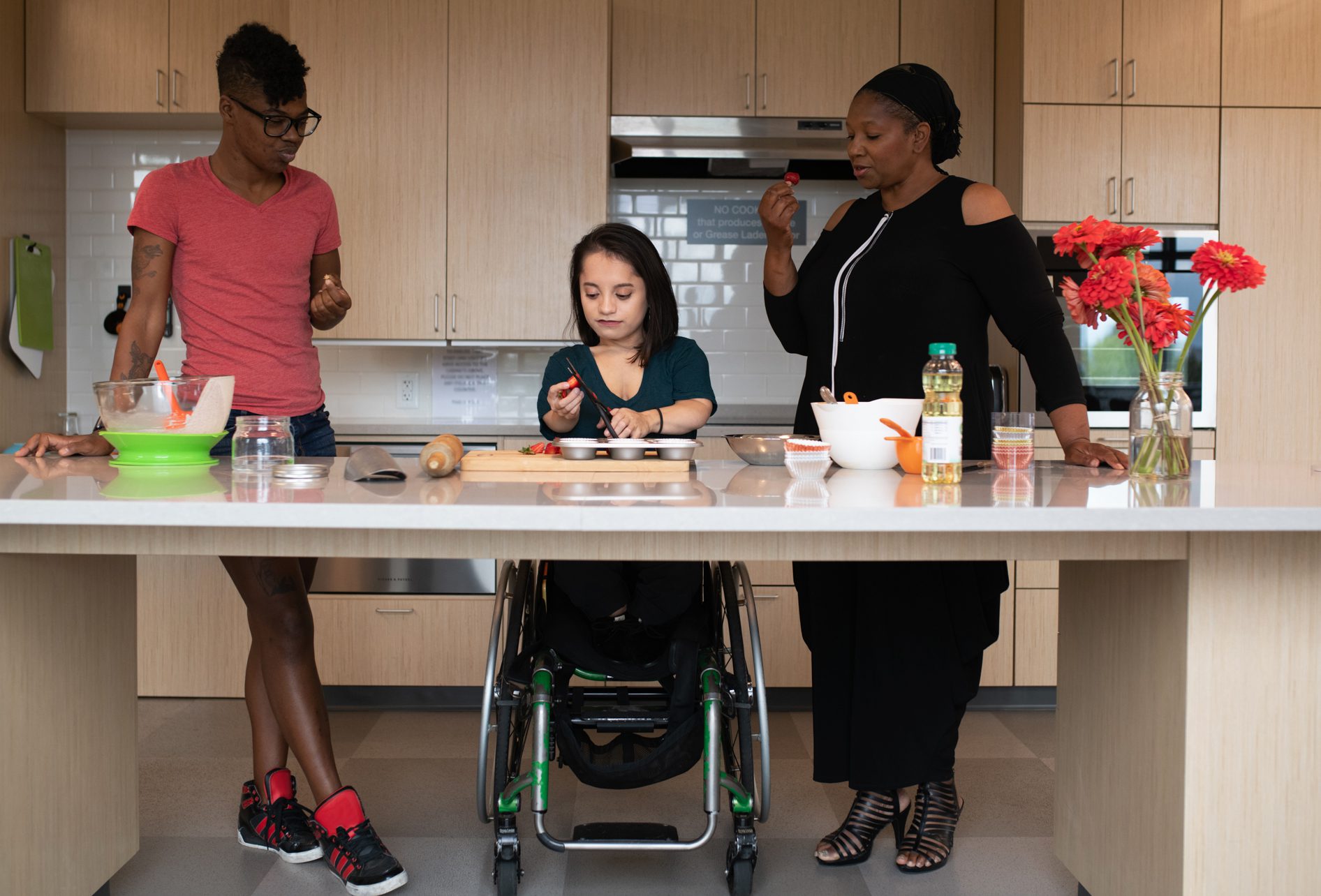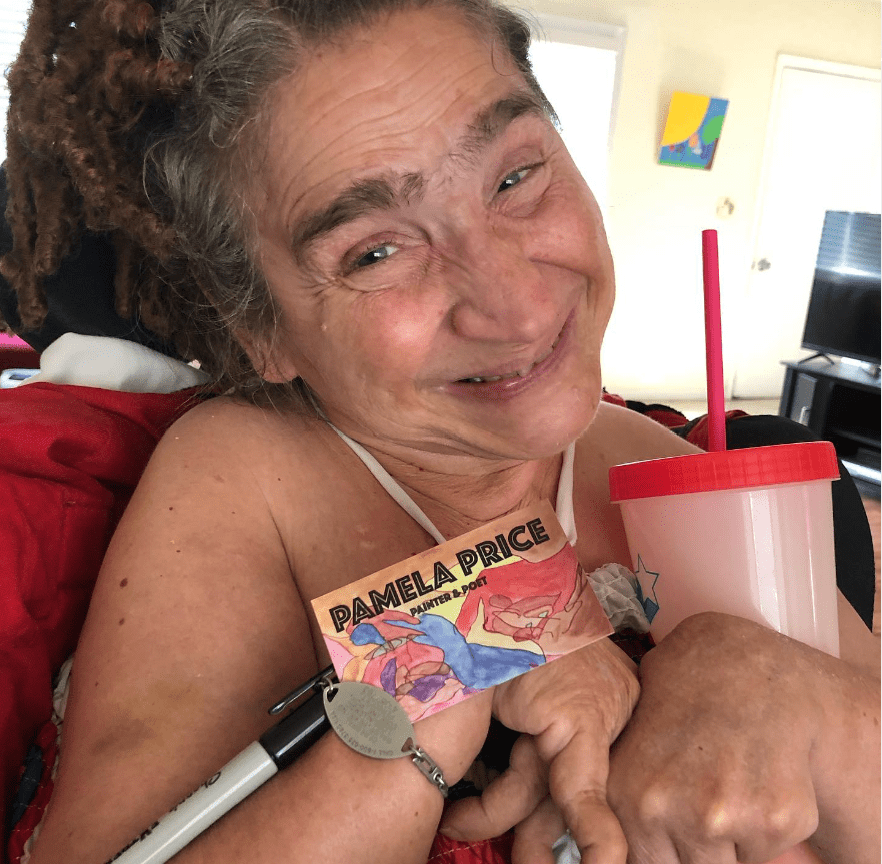We offer holistic residential services to adults with intellectual and/or developmental disabilities or autism. “Holistic” means that we support the whole person. We wrap the person in the supports that are important to them. This includes:
- supporting physical and mental wellness
- supporting the person to find joy and meaning in their life.
- helping the person to connect with people, places, and things in their community
- helping the person to find and maintain housing according to their needs and preferences.
Our residential habilitation service is licensed under the Office of Developmental Programs. With licensing comes compliance standards related to the person’s home, healthcare, documentation, and more. It’s important to us that the person not “feel” these compliance requirements. It’s their home and their life, not a “program” to be managed.
The specifics of a person’s supports can vary based on their wants or needs. Here are some general features of the Residential Habilitation Service:
Individualized Person-Centered Support:
Our residential service is offered in line with the person’s Individual Support Plan (ISP). Our team works with the person accepting support to complete an annual assessment. The assessment informs what is included in the ISP. Ongoing, we work with the person to evaluate our services and supports. We adapt our practices in support of the person’s needs and preferences.
We help the person to use person-centered thinking and planning tools. These tools are designed to help the person to state their vision and plan for their good life. Some commonly used tools include:
- Matching Tool for staffing support needs and preferences
- Community Mapping to help the person to identify opportunities in their community
- The Charting the LifeCourse framework tools, such as the Integrated Support Star and the Trajectory
Each person has a team of Support Partners that they have chosen to provide their support. Our Support Partners are trained to support the unique needs and preferences of the person.
Daily Living Assistance:
Our residential services include assistance with activities of daily living, as needed and requested by the person. This can and often includes:
- Supporting the person to care for themselves in ways they direct and are comfortable with
- Food shopping and cooking
- Household chores (cleaning, laundry, organizing, etc.)
Community Integration:
We support the person to live in their chosen neighborhood, near the people and places that are important to them. We help the person to do the things they want to do, including participating in local activities, meeting people, and building meaningful relationships.
Career & Employment
We help the person to be successful with their career goals. This can include:
- exploring interests and aspirations
- setting daily routines
- transportation
- other activities of daily living that help with employment
This support can provided alongside employment services offered by another organization.
Skill Development:
We work with the person to learn or enhance the skills they want or need to live the life they choose. These skills can include:
- Problem solving and planning
- Interpersonal communication
- Money management and budgeting
- Self-advocacy
Home Management:
We help the person to find and rent a home based on their specifications. We start by helping the person to articulate their wants and needs:
- Where do they want to live? Do they have a specific town in mind?
- Do they want to stay near the people, places, and things that are familiar or important to them?
- Is it important that the home be accessible to major roads and/or public transportation?
- Are there accessibility needs?
We encourage the person to participate in this process as much as they are willing and able. That includes the initial on-line search, touring potential places, and most importantly, deciding where they want to live. Ongoing, we help the person to care for their home.

Health Care Coordination
People receiving a licensed residential service often have a level of complexity to their support needs. For many, this includes medical and/or physical support needs. We work closely with the person to ensure they have the healthcare they need with professionals they are comfortable with. We help the person to take the lead in their healthcare coordination as much as they are willing and able. We help the person to:
- Schedule, prepare for, and attend their appointments
- Get, learn about, and take their medications
- Keep up to date with routine and follow-up care
- Organize their medical documentation
Self-Care and Wellness
We help the person to do the things that help them feel good. For some, that’s physical activity, such as dancing, going to the gym, taking a walk, or a yoga class. For others, it may be expressing themselves creatively through the arts, or relaxing with a book or movie. Each of us are unique. We help the person to explore their interests and take part in the activities they prefer.
Communication Support
We follow the person’s lead. We get to know the person and the ways they communicate. We help the person to communicate in ways that are meaningful to them and help them to connect with others. Our team of support partners are trained in the person’s communication needs and preferences.
Transportation Assistance
We help the person to get to where they want or need to go. For some, this includes being driven in their Support Partner’s car. It can also involve helping the person to learn about, plan for, and take public transportation.
Relationship Building
We recognize the threat loneliness and isolation has on health and wellbeing. We support each person to expand upon their social connections in ways that are meaningful to them. This may include:
- learning and practicing social skills
- meeting people with shared interests
- forming relationships
- staying connected with the people who are important to them
From the Blog:
Welcome to Pam’s World
Independence, Creativity, and Choice…three individual rights that are sometimes taken for granted. Imagine being a person with disabilities who relies on the support of others to exercise these simple rights. Consider being unable to choose what you wear, the foods you eat, or the places you visit. This is the unfortunate reality for many people […]

